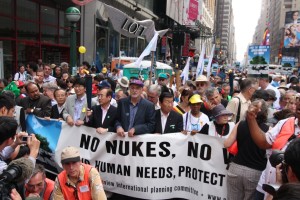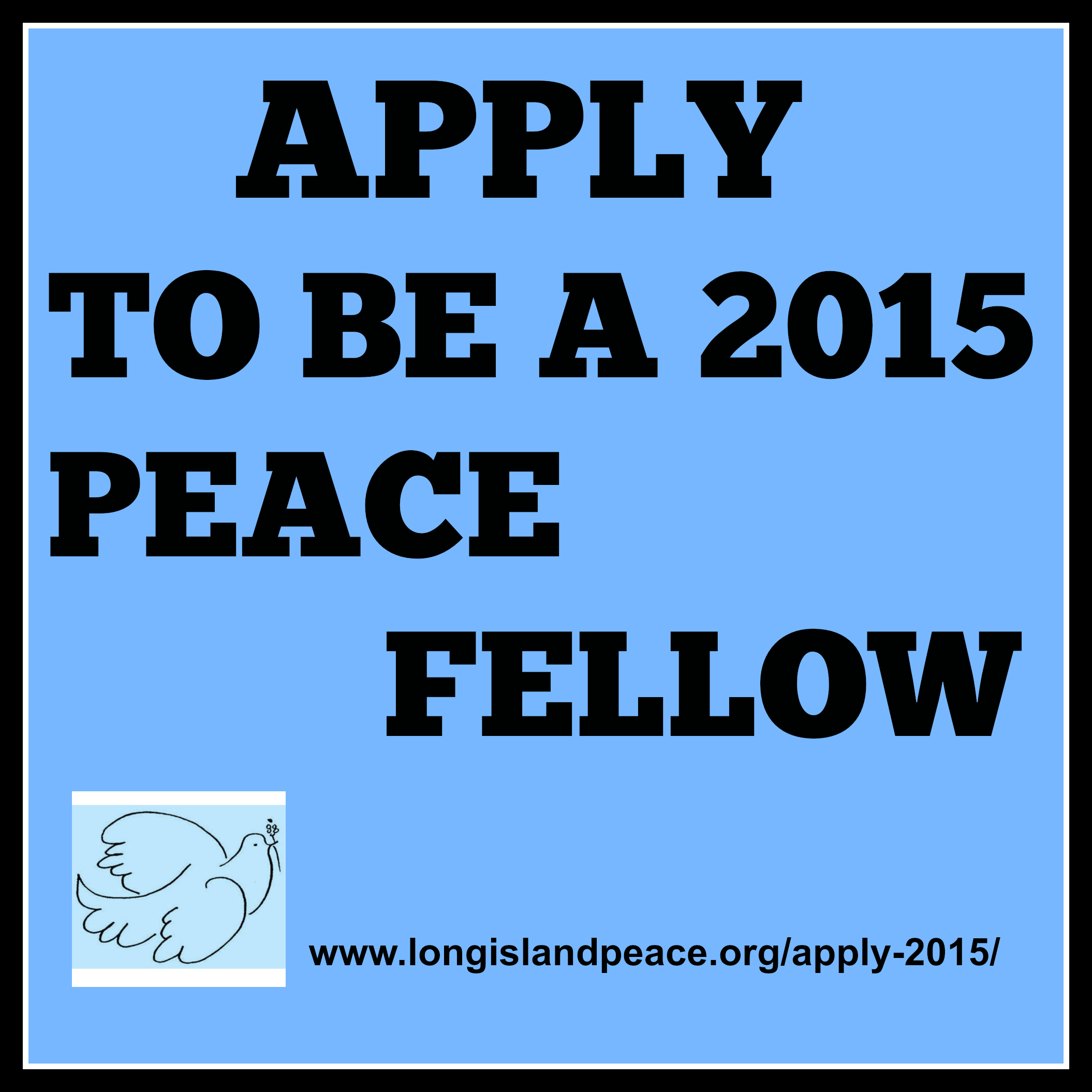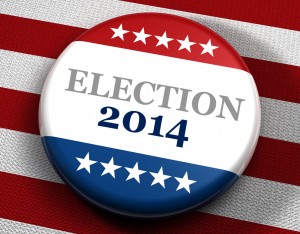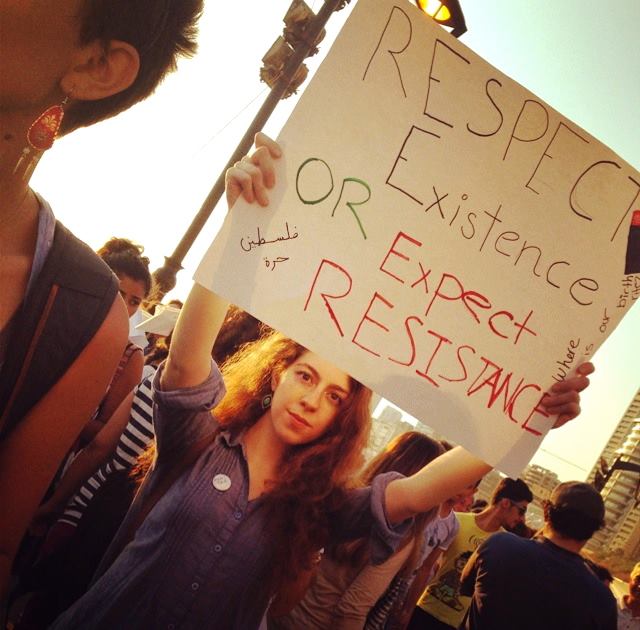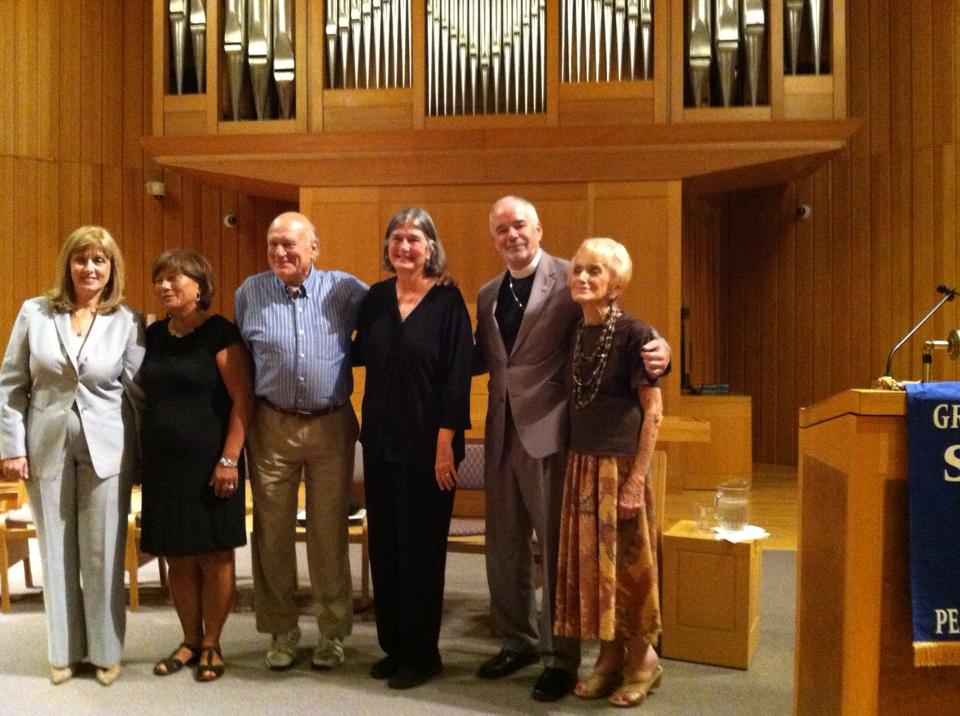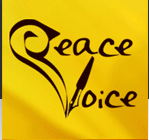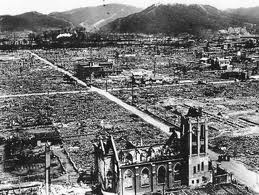The Alliance has endorsed the Civil Society Statement to the United Nations First Committee on Nuclear Weapons and the International Security Context. Over 100 organizations — international, national, regional and local, in 11 countries (plus 8 individuals identified for organizational purposes only) — endorsed this powerful statement underscoring the urgency of current nuclear dangers, which was presented to the First Committee on 28 October. For more information, please visit http://www.abolition2000.org/?p=3546.The final statement and list of endorsers is below:
Nuclear Weapons and the International Security Context
Civil Society Statement to the United Nations First Committee, 28 October 2014
At the 2010 Nuclear Nonproliferation Treaty Review Conference, states parties reaffirmed their commitment to a “diminishing role for nuclear weapons in security policies to minimize the risk that these weapons ever be used and to facilitate the process of their total elimination.”[i] Nearly five years have passed; another Review Conference is in the offing. Nuclear stockpiles of civilization-destroying size persist, and progress on disarmament has stalled.[ii]
The commitment to diminish the role of nuclear weapons in security policies assumed that de-coupling nuclear weapons from conventional military forces would help facilitate elimination of nuclear arsenals. Yet there has been little progress in reducing the role of nuclear weapons. All nuclear-armed states are modernizing their nuclear arsenals. Modernization efforts include development by the leading nuclear weapons states of new nuclear-capable missiles, aircraft, and submarines that will incorporate advances in stealth and accuracy.[iii] Publicly available information shows that nuclear weapons continue to have a central role in security policies, and in the case of the United States, the integration of conventional and nuclear forces in current war planning.[iv] Potential adversaries of the United States see its advantage in long-range conventional forces as a rationale for retaining and modernizing their nuclear arsenals.
The decoupling of nuclear from conventional military forces is further impeded by arms-racing in non-nuclear weapons of strategic significance. These include missile defenses, more accurate and powerful stand-off weapons, and concepts such as “prompt global strike” that aim to hit targets anywhere on earth with a non-nuclear payload in an hour or less. The United States has taken the lead, but many others are participating in this accelerating new arms race which is not constrained to a bi-polar confrontation.
Nuclear war will not come as a bolt from the blue. It will come when national elites misjudge one another’s interests in a conflict on the borderlands of some nuclear-armed country, and “conventional” warfare escalates out of control. This is all the more likely in the 21st century strategic context where stealthy, precision stand-off weapons and delivery platforms face sophisticated and increasingly capable air and missile defenses, while electronic warfare measures target sensors and data-dependent systems. These elements can interact at levels of speed and complexity that defy human comprehension, much less rational decision-making.
For more than two decades, the political and military elites of the leading nuclear-armed states have engaged in perilous double-think about their arsenals. They have assured their publics that the continued existence of nuclear weapons in civilization-destroying numbers no longer presented a real danger because the risk of war among nuclear-armed states was a feature of the Cold War, now safely past. At the same time, they have done everything necessary to keep catastrophe-capable nuclear arsenals long into the future, as a hedge against the day when the most powerful states again might make war with one another.
Today we see a new round of confrontations among nuclear-armed states, in economic and political circumstances that bear worrisome resemblances to those that brought about the devastating wars of the 20th century. Amidst one crisis after another from Ukraine to the Western Pacific, the world’s most powerful militaries brandish their nuclear arms, while claiming that “routine” exercises with weapons of mass destruction pose no danger, could never be misconstrued or get out of hand.
To those who view the world from the heights of power and privilege in nuclear-armed states, all this only gives further reason to hold on to the weapons they have, and to develop more. For the vast majority of humanity, struggling just to get by in a world of immensely stratified wealth and power, it means a return to madness, to a world where at any moment the people can be annihilated to preserve the state. The lack of urgency on disarmament in the ruling circles of the most powerful states should shock the conscience of every person who still has one.
The growing risks of great power war and use of nuclear weapons make the abolition of nuclear weapons all the more imperative. It is far more likely to succeed if linked to economic equity, democracy, climate and environmental protection, and dismantlement of highly militarized security postures. For our part, Abolition 2000 members and partner groups are organizing a large-scale civil society conference, march and rally on these themes on the eve of the 2015 NPT Review Conference, the presentation of millions of signatures calling for the total ban and elimination of nuclear weapons, and local actions around the world.[v]
— Statement coordinated by Western States Legal Foundation, Oakland, California, USA, a member of the Abolition 2000 Global Network to Eliminate Nuclear Weapons. Endorsed by 100 international, national, regional and local civil society organizations in 11 countries (plus 8 individuals for organizational identification only).
Statement endorsed by:
Action AWE, London, United Kingdom
Arab Human Security Network, Damascus, Syria
Architects/Designers/Planners for Social Responsibility, USA
Ban All Nukes generation (BANg, international)
Basel Peace Office, Basel, Switzerland
Beacon Presbyterian Fellowship, Oakland, California, USA
Beyond Nuclear, Takoma Park, Maryland, USA
Brooklyn for Peace, New York City, New York, USA
Campaign for Nuclear Disarmament, United Kingdom
Christians For The Mountains, Dunmore, West Virginia, USA
Coalition for Nuclear Disarmament and Peace (CNDP), India
CODEPINK, USA
Code Pink Golden Gate Chapter (Bay Area Code Pink), California, USA
Concerned Citizens for Nuclear Safety, Santa Fe, New Mexico, USA
Crabshell Alliance, Baltimore, Maryland, USA
Democratic World Federalists, International
Earth Action, International
Ecumenical Peace Institute/CALC (Clergy and Laity Concerned), Berkeley, California, USA
Fairmont, MN Peace Group, Fairmont, Minnesota, USA
Fellowship of Reconciliation, USA
Western Washington Fellowship of Reconciliation, Washington, USA
Friends Committee on National Legislation, USA
Fukushima Response Bay Area, Northern California, USA
German chapter, International Association of Lawyers Against Nuclear Arms, Berlin, Germany
Green Shadow Cabinet, USA
International Network of Engineers and Scientists (INES)
INND (Institute of Neurotoxicology & Neurological Disorders), Seattle, Washington, USA
International Physicians for the Prevention of Nuclear War (IPPNW)
International Peace Bureau
Japan Council against A and H Bombs (Gensuikyo), Japan
Jeannette Rankin Peace Center, Missoula, Montana, USA
Lawyers Committee on Nuclear Policy, New York City, New York, USA
Le Mouvement de la Paix, France
LEPOCO Peace Center, Lehigh-Pocono Committee of Concern, Bethlehem, Pennsylvania, USA
Long Island Alliance for Peaceful Alternatives, Garden City, New York, USA
Los Altos Voices for Peace, Los Altos, California, USA
Metta Center for Nonviolence, Petaluma, California, USA
MLK (Martin Luther King) Coalition of Greater Los Angeles, Los Angeles, California, USA
Montrose Peace Vigil, Montrose, California, USA
Mt. Diablo Peace and Justice Center, Walnut Creek, California, USA
Multifaith Voices for Peace & Justice, Palo Alto, California, USA
Nafsi Ya Jamii community center, Oakland, California, USA
Nevada Desert Experience, Las Vegas, Nevada, USA
No Nukes Action Committee, Northern California, USA/Japan
Nuclear Age Peace Foundation, Santa Barbara, California, USA
Silicon Valley Chapter, Nuclear Age Peace Foundation, Menlo Park, California, USA
Nuclear Information and Resource Service, Takoma Park, Maryland, USA
Nuclear Watch New Mexico, Santa Fe, New Mexico, USA
Nukewatch, Luck, Wisconsin, USA
Oakland CAN (Community Action Network), Oakland, California, USA
Oak Ridge Environmental Peace Alliance, Oak Ridge, Tennessee, USA
Office of the Americas, Santa Monica, California, USA
Oregon PeaceWorks, Salem, Oregon, USA
Our Developing World, Saratoga, California, USA
Pacem in Terris, Wilmington, Delaware, USA
Pax Christi International
Pax Christi USA
Pax Christi Long Island, New York, USA
Pax Christi Metro New York, New York City, USA
Peace Action, USA
Peace Action West, California, USA
Peace Action Staten Island, Staten Island, New York, USA
Peace Boat, Japan/international
Peace Foundation, New Zealand
Peaceworkers, San Francisco, California, USA
People for Nuclear Disarmament, Australia
Physicians for Social Responsibility, USA
Physicians for Social Responsibility – Kansas City, Kansas City, Missouri, USA
San Francisco Bay Area Chapter Physicians for Social Responsibility, California, USA
Popular Resistance, USA
Prague Vision Institute for Sustainable Security, Prague, Czech Republic
Proposition One Campaign, Tryon, North Carolina, USA
Rachel Carson Council, Bethesda, Maryland, USA
Reach and Teach, San Mateo, California, USA
Rocky Mountain Peace and Justice Center, Boulder, Colorado, USA
RootsAction.org, USA
Scientists for Peace, Germany
Sisters of Charity Federation, North America
Sisters of Charity of New York, New York City, New York, USA
Soka Gakkai Internatioal (SGI)
Swedish Peace Council Sweden
The Acronym Institute for Disarmament Diplomacy
The Colorado Coalition for the Prevention of Nuclear War, Denver, Colorado, USA
The Ecological Options Network, EON, Bolinas, California, USA
The Human Survival Project, University of Sydney, Sydney, Australia
The Nuclear Resister, USA
The Peace Farm, Amarillo, Texas, USA
The United Methodist Church, General Board of Church and Society (international)
Topanga Peace Alliance. California, USA
Tri-Valley CAREs (Communities Against a Radioactive Environment), Livermore, California, USA
2020 Action, USA
United for Peace and Justice, USA
United Nations Association, San Francisco, California, USA
US Peace Council, USA
Veterans for Peace, USA
War Prevention Initiative, Portland, Oregon, USA
WarIsACrime.org, USA
Women’s International League for Peace and Freedom – US Section (WILPF US
World Future Council (international)
World Peace Now, Point Arena, California, USA
Dr. Joseph Gerson, American Friends Service Committee, USA*
Stephen McNeil, American Friends Service Committee, Wage Peace program, San Francisco, California, USA*
Aaron Tovish, International Campaign Director, Mayors for Peace 2020 Vision Campaign*
David McReynolds, former Chair, War Resisters International*
Rev. Marilyn Chilcote, Parish Associate St. John’s Presbyterian Church, Berkeley, California, USA*
Sarah H. Lorya, MA, School Outreach Coordinator,
AFS-USA, Inc.*
Don Eichelberger, Abalone Alliance Safe Energy Clearinghouse, San Francisco, California, USA*
Libbe HaLevy, Nuclear Hotseat Podcast, USA*
*for purposes of identification only
[i] 2000 Review Conference of the Parties to the Treaty on the Non-Proliferation of Nuclear Weapons, Final Document, Volume I, NPT/CONF.2000/28 (Parts I and II), p.15; reaffirmed by 2010 Review Conference of the Parties to the Treaty on the Non-Proliferation of Nuclear Weapons, Final Document, Volume I, p.19.
[ii] See Hans M. Kristensen and Robert S. Norris, “Worldwide deployments of nuclear weapons, 2014,”Bulletin of Atomic Scientists online, 2014.
[iii] Hans M. Kristensen and Robert S. Norris, “Slowing Nuclear Weapon Reductions and Endless Nuclear Weapon Modernizations: A Challenge to the NPT,” Bulletin of the Atomic Scientists 2014 No.70 p.94.
[iv] Nuclear weapons continue to be a core element of NATO’s strategic concept, with the nuclear arsenals of the United States, France, and the United Kingdom considered to be the “supreme guarantee of the security of the Allies.” Active Engagement, Modern Defence : “Strategic Concept For the Defence and Security of The Members of the North Atlantic Treaty Organisation,” Adopted by Heads of State and Government in Lisbon, 19th November 2010. The 2014 Master Plan of the U.S. Air Force Global Strike Command, responsible for the missile and bomber elements of U.S. nuclear forces, states that “AFGSC [Air Force Global Strike Command] will maintain and improve its ability to employ nuclear weapons in a range of scenarios, to include integration with conventional operations….” U.S. Air Force Global Strike Command, Strategic Master Plan 2014, p.9. Russia’s most recent publicly available military doctrine document states that “ [t]he Russian Federation reserves the right to utilize nuclear weapons in response to the utilization of nuclear and other types of weapons of mass destruction against it and (or) its allies, and also in the event of aggression against the Russian Federation involving the use of conventional weapons when the very existence of the state is under threat.”
